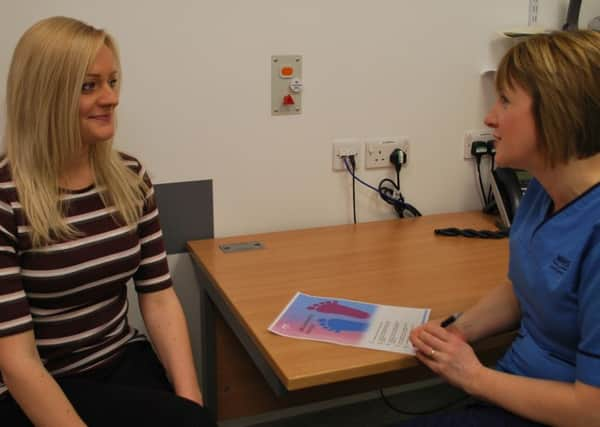Movement matters campaign aimed at new mums


Reduced movement can be associated with a risk of stillbirth, with half of all women who have had a stillbirth experiencing reduction in their baby’s movements.
The Movement Matters campaign aims to highlight the importance of recognising a baby’s unique pattern of movements, whilst working with mothers to reduce risk through various support initiatives.
Advertisement
Hide AdAdvertisement
Hide AdMost women become aware of their baby moving from around 18-20 weeks, this is often described as feeling like flutters, kicks or swishes. These movements then increase in number until around 32 weeks and stay the same until birth.
Whilst the type of movements can change as a baby increases in size or as the birth date nears, the amount of movements should remain the same.
Lorraine Philip, inpatient midwifery manager, said: “Every pregnancy is unique. If it’s your first pregnancy you might not know what to expect in terms of movement, however, you’ll soon get to know what is normal for your baby.
“If you already have children, you may find that your new baby is active at different times of the day or moves in a different way compared to previous pregnancies.
Advertisement
Hide AdAdvertisement
Hide Ad“Your midwife will discuss the importance of movement throughout your pregnancy, and you can expect a detailed discussion at your 24 week appointment. You will be asked about your baby’s movement at every antenatal visit.
“If your baby’s movement reduces, it is important that you contact your maternity unit – don’t be worried about getting in touch and don’t put off calling, you will be seen at any time as necessary. Although the risk of stillbirth is small it is important that you know that a reduction in movement is linked to stillbirth.”
It is hoped the Movement Matters messages, which will be highlighted in various health locations including GP practices, will help encourage mums-to-be to contact their maternity unit to seek advice.